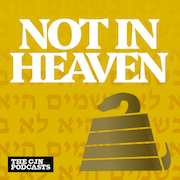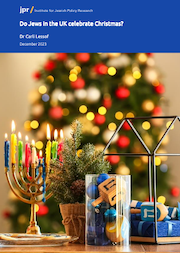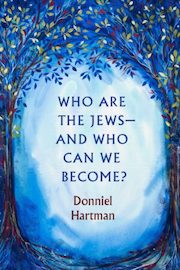This month’s newsletter is early because I’m traveling the rest of June – we’re taking our grandson for a delayed, post-bar mitzvah trip – you can read about his bar mitzvah here. It was shortly after October 7; it feels like the news in this country and around Israel has been terribly challenging ever since.
Israel, Belonging to the Jewish People, and Interfaith Marriage
The last thing I want to do is anything to distance American Jews from Israel. That’s why it’s sad when prominent Israelis express demeaning attitudes about interfaith marriage specifically and liberal Judaism more generally that can only contribute to that distancing.
Item. This month the Pew Research Center released its Global Religious Landscape study, which includes a section on Jewish population change. The JTA asked “How Many American Jews Are There?” and didn’t address any impact of interfaith marriage, which is fine. But in a Times of Israel story, eminent Israeli demographer Sergio Della Pergola exhibited maddening obliviousness to the realities of interfaith marriage.
He doesn’t explicitly say “interfaith marriage,” but he says, “For about 100 years, assimilation increased steadily. In the US and many European countries, it reached 60%. Essentially, it can’t go higher.” The 2020 Pew report found that 61% of Jews who married between 2010 and 2020 intermarried. It’s clear that Della Pergola is equating interfaith marriage with assimilation.
He does this even though, according to the article, he pointed out “a growing trend of assimilated or partially assimilated Jews reconnecting with their Jewish identity.” In other words, by his own admission, more people in interfaith marriages and their children are identifying as Jewish – the opposite of assimilation.
Worse, he credits antisemitism as the reason, even though the trend of more children of interfaith marriage identifying as Jewish was reported in the 2020 Pew report, long before the recent resurgence in antisemitism.
This kind of gratuitous demeaning of interfaith marriage is tiresome and maddening.
Item. Then there was a story in eJP about a Likud parliamentarian, Galit Distel-Atbaryan, who ejected, from a subcommittee hearing, Gilad Kariv, an Israeli Reform rabbi who is a member of the Knesset. During discussion of an initiative to add Jewish content into school curricula, including allowing time for students to put on tefillin in school, Kariv said the measure should include all students, male and female, noting that one of his daughters puts on tefillin. Distel-Atbaryan reportedly called his comments “provocative,” made a joke about Kariv inviting her “to a bar mitzvah for a dog,” and called the ushers to “get the enlightened Reformi out of here, we Jews wish to continue.”
Thankfully, these remarks sparked outrage from many Israeli leaders. The heads of the Jewish Agency for Israel appropriately said, “Divisive and ignorant remarks like this … weaken our people and the unity of the Jewish People specifically at a time when we more than ever need to be strengthening our ties and bringing our hearts closer together.”
Item. Rabbi Jeffrey Salkin wrote an interesting piece for Religion News Service about the World Zionist Congress election, in which the Reform movement received more votes (about 20% of the total) than any other slate. (The Congress allocates more than $1 billion to Israel and world Jewry.) Slates affiliated with Orthodox Judaism got 40% of the vote, however; Rabbi Salkin notes with “sadness” the discrepancy that 95% of Orthodox Jews feel a strong sense of belonging to the Jewish people, compared to 49% of Reform Jews, and exhorts liberal Jews to repair our ties to our people.
But of course, many Reform Jews are in interfaith relationships, and it’s challenging for people in interfaith relationships to feel a sense of belonging to the Jewish people when prominent people dismiss them as assimilated.
Inclusion Is About Belonging – For All Groups
Meredith Englander Polsky is the co-founder, twenty-five years ago, and now executive director, of Matan, the leading Jewish disability inclusion organization. In an important essay for eJP about the ongoing need for Matan’s work, I loved what she had to say about inclusion of and belonging for all marginalized groups:
Disability inclusion is not separate from other efforts to build an equitable and welcoming Jewish community – it is deeply intertwined with them. Jews with disabilities are also part of the LGBTQ+ community …. They are Jews of Color. They are interfaith families. … When we talk about creating inclusive spaces for one group, we must consider how multiple identities intersect and how exclusion is compounded when we fail to recognize those intersections.
Our tradition teaches that every person is created b’tzelem Elohim, in the image of God. That includes people with disabilities…. And it includes people living at the intersection of multiple marginalized identities. If we believe this, truly believe it, then our institutions must reflect it in every policy, every classroom, every synagogue, every leadership table.
This work is not just about access — it’s about belonging. It’s about ensuring that people … are not merely present in Jewish spaces, but that they are valued, heard, and empowered as essential contributors to our communal life. It’s about recognizing that inclusion is not a destination, but an ongoing process that requires continual reflection, adaptation, and accountability.
Item. eJP had a story about Seth Farber, an Orthodox rabbi, and his organization Itim, which seeks to facilitate conversions in Israel. One of their initiatives is Shabbat v’Ahavtem, a special Shabbat just before Shavuot, when the story of Ruth, considered to be the first convert, is read. It concerned me, though, that the program refers to the Biblical commandment that appears thirty-six times, which I’ve always understood to mean to “love the stranger,” as instead to mean to “love the convert.”
I’m well aware that the Hebrew word “ger” can be translated as both “convert” and “stranger,” and I’m all for loving converts, but it feels like a misappropriation to say that the commandment is about loving converts. After all, in many of the thirty-six instances is appears, the commandment’s rationale is stated as “for you were strangers in Egypt.”
But the best thing in this story was a quote from Rabbi Adam Scheier of a traditional congregation, Shaar Hashomayim in Montreal, which I thought was so applicable to interfaith families and partners from different faith backgrounds:
When you build a community of closeness, there’s a natural resistance to letting someone from the outside in because it in many ways forces you to reconfigure what your definition of community is. Yet this is emphasized [in the Bible] because that’s exactly what our mandate is: to both build a close-knit community and at the same time always keep doors open and make sure that we’re welcoming to those who come in.
Also in the News
There were two celebrity interfaith marriages in the news this month. Huma Abedin (most known for her work with Hillary Clinton) and Alexander Soros had an “intimate, interfaith ceremony” officiated by Rabbi Darren Levine with a Muslim life cycle celebrant participating and a “roster of A-list Democrats … in attendance.” Princess Iman Pahlavi married American businessman Bradley Sherman, who became the first ever Jewish member of the exiled Iranian royal family.

 The Boston Globe published a story about a Massachusetts synagogue in which a gratuitous comment seemed to partly blame intermarriage for its closing. I wrote the following
The Boston Globe published a story about a Massachusetts synagogue in which a gratuitous comment seemed to partly blame intermarriage for its closing. I wrote the following  The false idea of demographic loss also came up in a short podcast, “
The false idea of demographic loss also came up in a short podcast, “ The UK Institute for Jewish Policy Research issued a new
The UK Institute for Jewish Policy Research issued a new  In his new book,
In his new book,